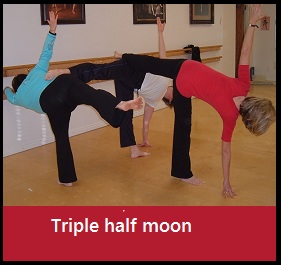Shalabha is locust in Sanskrit. There isn’t a Hindu mythological story about the locust but there is a Biblical story about a plague of locust.
The only useful thing I could find about the locust is that some cultures eat them. I’m not going to be trying that any time soon.

Moses had been to see Pharaoh 7 times already before the locust plague. Pharaoh would not consent to let the Israelites go despite the water in the land being turned to blood, a plague of lice, flies, diseased cattle, skin boils on man and beasts, and the hailstorm that destroyed the crops. Moses was commanded to go in to Pharaoh again.
Moses told Pharaoh to let the people go or God would bring a severe plague of locusts into the land. Pharaoh tried to convince Moses that he should go out to serve God with just the men. But Moses had to take all the people in order to obey God. Pharaoh became indignant and had Moses and Aaron driven out of his presence.
Later that day, Moses stretched out his hand and an east wind came. The next morning the wind brought the locusts.The locusts covered all the land in darkness. They ate everything that the hail had not destroyed.
Pharaoh called for Moses and Aaron. He confessed that he had sinned against God. He asked Moses to forgive his sin, take the Israelites away and to ask God to take away the locusts. But sadly, even after this plague of destruction, Pharaoh reneged on his promise and would not let Moses lead the Israelites away. Two more plagues were on their way to Egypt and Pharaoh.
The locusts were sent as a message to pay attention and obey the messenger of God. The simple solution for Pharaoh would have been to let them go quickly when he realized Moses was bringing God’s message.
Was it really necessary for Pharaoh to have destroyed so much of the land and bring suffering to everyone in Egypt because of his pride? That’s the message we can glean from practicing shalabhasana, to quickly listen and follow divine guidance.
A modern-day sage, Ezra Taft Benson said, “God will have a humble people. Either we can choose to be humble or we can be compelled to be humble. Let us choose to be humble.”
Use shalabhasana in practice to remind ourselves to stay close to our own spiritual path and live the ethical principles upon which yoga is based, the yamas and niyamas. Keep locusts on the mat and out of the garden.



